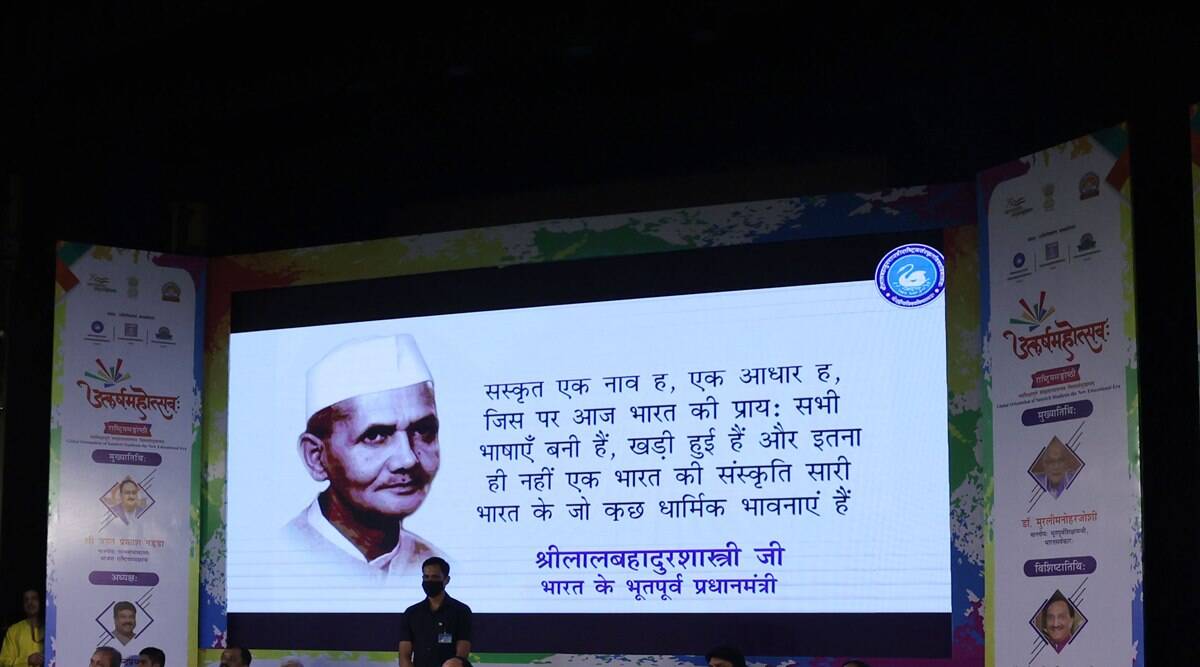A decision by the Lal Bahadur Shastri National Sanskrit University (SBSNSU), a centrally funded institute in Delhi, has overturned a previous decision that required a PhD thesis to be written in Sanskrit, resulting in protests from many doctoral scholars.
During a meeting held on August 24th, this year, under the leadership of the new Vice-Chancellor of the university Murli Manohar Pathak, who had replaced Ramesh Kumar Pandey, the decision was approved. According to the previous requirement for “all the traditional subjects” in 2019 under Ramesh Kumar Pandey, including vakaran, jyotish, advait vedanta, vishista advait, dharmashashtra, sahityas, and puranitihas, was mandated in 2019.
12 other participants, including deans and department heads, attended the meeting on August 24. In light of the guidelines laid down by the UGC regarding eligibility for recruitment for teaching positions, the committee recommended that the previous eligibility criteria (PhD thesis must be written in the Sanskrit language) will no longer be included in the mandatory requirements.
According to the statement, “It was decided that the eligibility criteria would be determined according to the UGC guidelines and that the concerned departments would follow the necessary procedures.” Subsequently, on September 30, 2022, positions were announced for nine associate professors and twelve assistant professors.
The requirement for submitting a PhD thesis in Sanskrit medium was introduced during the tenure of the previous vice-chancellor, according to Prof Pathak. An arbitrary decision resulted in a very limited pool of applicants. Many deserving candidates were not even permitted to apply. As far as the UGC guidelines are concerned, such requirements are not mandatory. Due to the removal of this clause from the eligibility criteria, we have received many applications, which are currently being screened.”
It is notable that the latest advertisement differs from the one issued on June 12, 2021, for the direct recruitment of two professors, 12 associate professors, and 22 assistant professors, in which it was clearly stated that the thesis must be written in Sanskrit.
The June 12, 2021 advertisement indicated that only candidates with a good academic record with a PhD in Sanskrit language were eligible for nine associate professor posts (vyakaran, jyotish, advait vedanta, vishista advait, dharmashashtra, sahitya, and puranetihas).
In addition, students were required to hold a master’s degree, preferably in Sanskrit, be capable of teaching Sanskrit, and have a minimum of eight years of teaching or research experience.
The Sanskrit language PhD thesis was also a “desirable” condition for two other positions available as associate professors (education). In addition to the same eligibility criteria for assistant professors, a PhD thesis in the Sanskrit language was a mandatory requirement, as well as the ability to teach in the Sanskrit language.
To be sure, when the Sanskrit medium PhD thesis requirement became mandatory, the institute was a deemed university. As a central university, it was established along with two other Sanskrit teaching institutes — Rashtriya Sanskrit Sansthan in Delhi and Rashtriya Sanskrit Vidyapeeth in Tirupati.
The V-C of the institute received a letter from a section of PhD scholars raising the issue of scrapping the mandatory requirement on October 27. In most Sanskrit institutions, it is mandatory for students pursuing PhD degrees in traditional subjects in Sanskrit medium.”
On the basis of the letter from the PhD scholars, the issue has been referred to the university administration. Several days after students contacted the V-C, the university administration issued a statement referring to the August 24 meeting as clarification.
The move has surprised many students on campus. According to a scholar who requested anonymity, “The move is anti-Sanskrit and defeats the purpose of the government in creating Central Universities in order to promote the language.”
